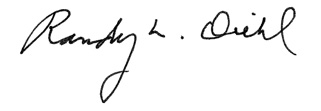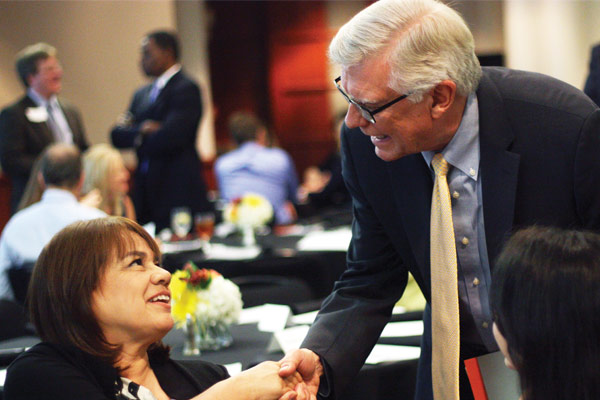The writer Lawrence Durrell once observed that travel is among the most rewarding forms of introspection, and students who study abroad bear this out. When they leave their comfort zones and experience life and learning in another culture, they return home knowing a lot more about themselves.
Study abroad gives students context to better understand how they fit into this world. They learn how to become adaptable, to think on their feet and negotiate unfamiliar places and customs. They form strong bonds with their peers and become more engaged in academic life. It is no surprise that these students have high retention and graduation rates and go on to successful careers in many fields.
In our last issue of Life & Letters we featured Hector Cantu, an economics senior who was so inspired by a lecture from visiting Polish economist Leszek Balcerowicz that he traveled to Warsaw to work for Balcerowicz’s think tank.
Cantu worked two jobs and secured an Undergraduate Research Scholarship from our college to make the trip in the summer of 2014. As the first international student to do research at the think tank, he learned about creating policies that promote economic freedom in developing countries, and he returned to Austin with a desire to help improve economic relations among the U.S., Europe and Mexico, his home country.
In a recent Daily Texan op-ed, Jeremi Suri, a professor of history and public affairs, offered the example of a former student of his (in Plan II and Middle Eastern Studies) whom he met during a recent visit to Abu Dhabi. The once shy Texas girl he remembered from his classes was now fluent in Arabic and working as an entrepreneur in the Middle East.
Suri says the student had become “an international operator in her own right, acting within the culture of her foreign residence.” She took a job in a region that “forced her to build business relationships with people who are unfamiliar and even suspicious of her background … She is not merely bridging cultures; she is living in multiple mindsets at the same time.” He concludes that future success as an international citizen “comes in crossing the mental boundaries that matter much more than the lines on a map or a job application.”
That is why study abroad is key to a strong liberal arts education. It is through such experiential learning that our students develop the critical, creative thinking skills they will need to become the next generation of ethical leaders our world sorely needs.

Randy L. Diehl, Dean
David Bruton, Jr. Regents Chair in Liberal Arts
